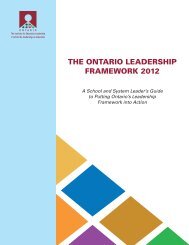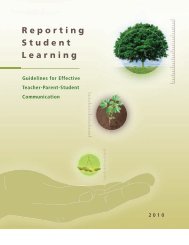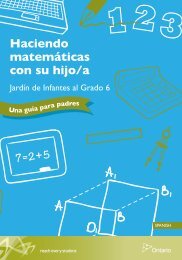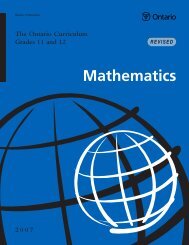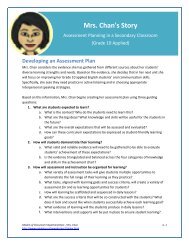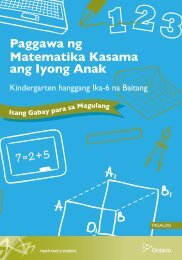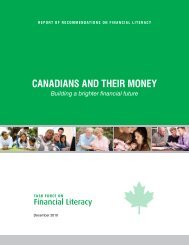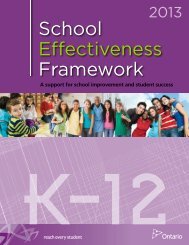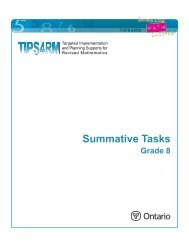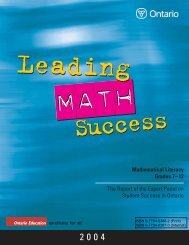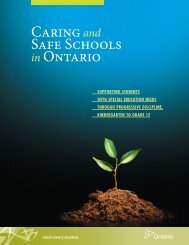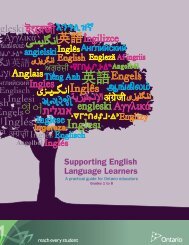Introduction
A Guide to Effective Instruction in Mathematics - eWorkshop
A Guide to Effective Instruction in Mathematics - eWorkshop
You also want an ePaper? Increase the reach of your titles
YUMPU automatically turns print PDFs into web optimized ePapers that Google loves.
learning plan, staff may also want to include activities that can be implemented jointlywith other schools or with staff from other sites.Peer CoachingPeer coaching offers teachers an opportunity to work together in planning activities,to visit each other’s classes, to discuss the teaching and learning that occurs there,to share ideas, and to help each other solve problems (Beavers, 2001).Study GroupsStudy groups are made up of educators (teachers, principals, central support staff, etc.)who want to share ideas and to study professional resources or current research aboutmathematics instruction. Generally, study groups consist of five or six people whomeet regularly to establish common goals, discuss readings on practices and research,share lesson plans, exchange ideas, develop collaborative units, and apply what islearned to improving students’ learning (Beavers, 2001). Members of study groups canalso work together to develop particular lessons, use those lessons in their classrooms,share their observations, and make improvements. In some cases, teachers may wantto visit one another’s classrooms to see how lessons are “played out” in other classes.The lessons that are developed can then be documented and shared with other teachers.Team TeachingTeam teaching provides opportunities for joint planning, joint instruction, feedback,and discussion. As equal partners, team teachers benefit from an environment ofcollaboration, experimentation, peer inquiry, and examination of classroom instruction(Sandholtz, 2000).MentoringMentor teachers are experienced educators who consistently apply effective strategiesto teach mathematics in their own classrooms. They act as role models to teacherswho are seeking support in adopting new teaching approaches. Mentor teachers modeleffective practices, share information and expertise, encourage reflection about teachingpractices, and offer support to others.Reflective Practice“Reflective practice” refers to a four-stage activity in which teachers,working with a partner or in a small group, reflect on their instructionaland assessment practices. Reflective practice begins in theclassroom, where teachers apply a “stop, look, and question” approachin order to examine their practices and to learn to differentiate theirteaching from their students’ learning. Teachers then collect, examine,“If we want to help teachersunderstand why they dowhat they do, we must anchortheir thinking in the samecognitive processes they wantto instill in their students.”(Lyons & Pinnell, 2001, p. 118)Achieving and Sustaining Improvement 17




